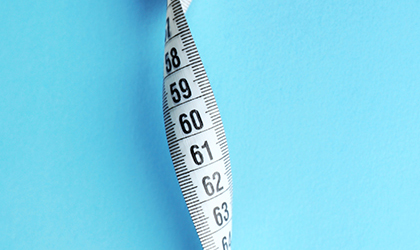
When it comes to supporting your liver, the buck doesn’t stop with curbing your alcohol consumption. While holding back on refilling your wine glass will, of course, help, there are countless areas of your lifestyle that demand just as much attention to keep this major organ happy and healthy. To give your liver an extra dose of much-needed TLC, be sure to refine these areas of your daily life.
Exercise
It’s no secret that exercise is a powerful weapon for both physical and emotional reasons. Movement and physical activity bolsters the immune system, reduces inflammation, regulates hormonal dysfunction, improves blood pressure, and releases ‘feel-good’ endorphins. And now we can add liver health to exercise’s expanding volume of benefits. Not only does working-out support the maintenance of a healthy weight – which can prevent and even reverse some liver conditions – but a growing raft of research suggests movement directly targets hepatic fat (the build-up of fat in the liver) independent of weighti. Some evidence purports that performing a combination of aerobic exercise and resistance training several times a week will provide the best results for your liverii. Think a week of dancing, running, and brisk walking, peppered with two strength-training sessions in the park or gym. Remember, an exercise class isn’t the antidote to sitting. Try to move as much as possible during the day.
Eat a balanced diet
Of course, physical activity is best served with plenty of healthy food. To keep your liver in tiptop condition, strive to eat a balanced, varied, and colourful diet – one that’s chock-full of whole grains, fibre, protein, fruits, veggies, and healthy fats. Steer clear of sneaky liver-health saboteurs, too: foods rich in salt, saturated fat, and sugar are a toxic combination for your liver. The sweet stuff is particularly taxing on your liver. While nearly every cell in the body can metabolise glucose, the onus is on your hardworking liver cells to process fructose. With this in mind, consuming vast quantities of fructose can overwhelm the liver and may even lead to irretrievable damage. Swap baked goods, pastries, and fizzy drinks with natural sources of sugar, like fruit. You could even use unrefined maple syrup, honey, or agave in baking instead of ultra-refined white sugar. Discover more about liver health nutrition here.
Maintain a healthy weight
A healthy liver should contain a negligible amount of fat. If there’s more than 5% of fat in this organ, then it’s deemed ‘fatty’ and may pave the way for complications further down the lineiii. Indeed, it’s widely acknowledged that being overweight or obese can increase the risk of developing a liver condition. Excess fatty tissue in the abdomen may lead to insulin resistance. When you’re insulin resistant, your fat, muscles, and liver cells are unable to respond properly to this hormone. As a result, insulin starts to accrue in the blood, increasing the number of fatty acids whizzing around in the bloodstream. One of the best things you can do for liver health – and the rest of your body, for that matter – is to maintain a healthy weight by eating the right food and performing enough exercise. Learn more about liver health and weight gain here.
Don’t smoke
We’ve got yet another reason to stub out this unhealthy habit for good: cigarette smoke can severely damage your liver (and lungs, heart, eyes, mouth – the list could go on). The gargantuan amount of toxins in tobacco causes a wave of inflammation in the body, paving the way for liver damage amongst other things. But that’s not all; smoking also incites the production of cytokines – nefarious compounds that intensify inflammation and damage liver cells. Of course, kicking this habit for good can be enormously challenging. It’s famous for being fiercely addictive, after all! So, if you’re serious about stubbing smoking out, make sure you get all the help and resources needed to live a happy, healthy, and smoke-free life.
Manage your medication
After being metabolised by your digestive system, the liver breaks down any medication you ingest. So, if you use that prescription of antibiotics incorrectly, you could damage your liver in the process. When it comes to medication, always follow the instructions on the packaging: pay close attention to when to take it; how to take it; and how much to take at each dosage. Don’t be tempted to double dose or mix up different types of the same medication, either. If you’re unsure about whether a certain medication may lead to liver damage, always consult your doctor or pharmacist.
Stay hydrated
Water really is the secret to optimal health, isn’t it? And it’s no exception when your liver is concerned. You see, when the liver is deprived of adequate hydration, it’s also robbed of its vital organ reserves – nourishment needed to take care of the rest of your body. Besides this, water also supports the fluid content of your blood. When you’re dehydrated, your blood becomes thicker. And since your liver is also charged with the responsibility of filtering blood, the viscosity can negatively affect this crucially important job. Be sure to drink 8-10 large glasses of water every day. Not a fan of straight-up H20? Why not add fresh berries or sliced citrus fruits to the mix. Oh, and always keep a bottle of water to hand at work – a visual reminder to drink up!
Limit your alcohol consumption
Let’s not forget for a second just how robust and resilient your liver is. It’s the only organ in the human body that can regenerate. But make no mistakes: this isn’t an excuse to take your liver for granted. Sure, it can tolerate small amounts of alcohol, but once you cross a certain threshold – drinking too much or too fast – you can severely tax it. When that glass of vino reaches your liver, it triggers the production of the toxic enzyme, acetaldehyde, which conspires to hijack liver cells and may even cause permanent scarring. Fortunately, most of the damage caused by those Fridays nights is reversible, as long as you curb your consumption or teetotal entirely. Remember, UK guidelines warn men and women against drinking more than 14 units of alcohol per week (the equivalent to 7 medium-sized glasses of wine (12%) or 6 pints of beer (4%)). Do you often devour all 14 units every week? Make a concerted effort to spread your alcohol consumption over three or more days. And avoid ‘saving up’ your units, too. Your liver doesn’t fair well with binge drinking. Moving forward, why not use smaller glasses for your tipples so you aren’t tempted to drink more? Learn more about alcohol and liver health here.
References:
-
NHS.UK. (2019). Non-alcoholic fatty liver disease (NAFLD). Available online: https://www.nhs.uk/conditions/non-alcoholic-fatty-liver-disease [Accessed 6 May. 2019].
-
Eckard. C., Cole. R., Lockwood. J., Torres. D., Williams. C., Shaw. J. & Harrison. S. (2013). Prospective histopathologic evaluation of lifestyle modification in nonalcoholic fatty liver disease: a randomized trial. Therapeutic Advances in Gastroenterology. ;6(4), 249-259.
-
Taniguchi. H., Tanisawa. K., Sun. X., Kubo. T. & Higuchi. M. (2016). Endurance Exercise Reduces Hepatic Fat Content and Serum Fibroblast Growth Factor 21 Levels in Elderly Men. The Journal of Clinical Endocrinology & Metabolism. ;101(1), 91-198. Zelber-Sagi. S. (2014). Effect of resistance training on non-alcoholic fatty-liver disease a randomized-clinical trial. World Journal of Gastroenterology. ;20(15), 4382.
-
Ahmed. M. (2015). Non-alcoholic fatty liver disease in 2015. World Journal of Hepatology. ;7(11), 1450–1459.
You Might Also Like

Keri
Keri Filtness has worked in the Nutrition Industry for 19 years. She is regularly called upon for her professional comments on health and nutrition related news. Her opinions have been featured by BBC3, Prima, Vitality, The Mirror, Woman’s Own and Cycling Weekly, amongst others. She has also worked one to one with journalists, analysing their diets and health concerns and recommending changes and additions, where appropriate.
View More



